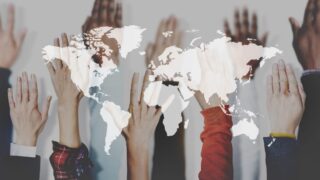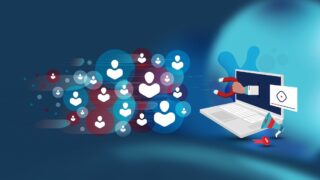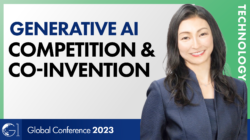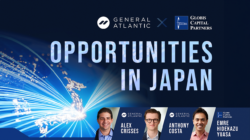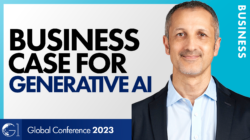Champions of diversity, equity, and inclusion (DEI) in the workplace tend to argue from a moral standpoint. Discussions are often about the vague concept of “fairness.” And while, yes, the workplace should be fair, how do you measure fairness in business? And by extension, how do you convince top management that employee engagement for diversity leads to a better bottom line?
Dr. Jackie F. Steele, founder of the diversity consulting firm enjoi Japan spoke at a recent GLOBIS seminar about the benefits of a data-driven decision-making process to DEI (defined by her team as diversity, equity, and innovation).
In this video, Steele talks about data-driven approaches to DEI policy, the benefits of a diverse workforce, and ways to build a workplace in which employees feel comfortable displaying their authentic selves and skills. Below is a transcript of questions from the audience Q&A, edited for clarity. Watch the video above for her keynote speech and dialogue with GLOBIS University faculty member Megumi Taoka.
Next Article
Redefining DEI as Diversity, Equity, and Innovation
Evolving Japanese Society with Diversity and Equality in the Office
How One Woman Is Promoting Digitalization and Diversity for a New Age of Marketing
What are the benefits of taking a data-driven, strategic approach to diversity in the workplace?
Dr. Jackie F. Steele: There’s a reason why tonight’s presentation was very data-driven, very research-oriented, and very much about disrupting the models and traditional ways that we think about DEI: I do believe that it’s business strategy. And I think that if you’re going to do a strategy, you need to have data, and you need to measure. You need to have performance, and you need to have accountability.
So if we’re not in that modality, then don’t call it DEI. Call it a box tick. Let’s not pretend that we’re doing DEI when we’re really doing a one-off international women’s day event. That’s not a strategy. It’s, “Let’s have an event. Let’s do something for women. Let’s say that we’re showing up in solidarity with women on this one day of the year.” [That’s not enough to] make sure that the talented women in your company are finding equitable opportunities for promotion.
Are you measuring the promotion rates between men and women in your company? Do you know the data on that? Why don’t you? If you’re not measuring it, you’re not going to know that there’s a major blind spot in promotion rates.
What is the cost of talent turnover? How many people are quitting every year? How many job requirements are open? Do you know the data on that? What data points to the lack of psychological safety and the fact that people are jumping ship and going to where the grass is greener?
If that doesn’t worry your leaders, maybe you’ll go bankrupt in the next five-to-ten years.
How can job seekers find an employer that embraces diversity and fosters an inclusive workplace?
Steele: I think that the more data available to talent to shop for companies that they want to join, the better. Public policy has a really important role to force standards of disclosing gender split in employment, the level of multilingual talent in the ecosystem, the split of different nationalities in a company, and policies to support diverse family formations.
We need to change the market so that employers don’t have all the information on employees, but employees have little-to-no information on the companies. That’s a power dynamic.
And with this talent crisis, my view is that people are jumping ship. What I see is that people are absolutely jumping ship left, right, and center. They’re saying, “I’ve trusted and have in good faith believed in my leader for ten or fifteen years, and it’s not happening. It’s not in the cards. I see only superficial shifts. [All I see is] DEI washing.” Be it feminist washing, be it sustainability washing, greenwashing, whatever you want to call it.
Younger talent is really values-based and purpose-driven. But even the older populations are saying, “We just had a two-year pandemic. What am I on this planet for?” I watched whole populations in Tohoku after the [2011 Tohoku earthquake and tsunami] wake up and say, “I almost died yesterday. What am I doing in a job that I hate with people who I don’t admire and with leaders who I just don’t trust anymore?”
And they quit. And they decided to make social impact enterprises to rebuild the Tohoku region. So there are other alternatives. And I do see people voting with their feet a lot, and the talent crisis right now means it’s a great opportunity to be shopping for options.
There are other indicators: What does their corporate board look like? Is it all groupthink? Is it all one demographic? At the most senior level, are they going to be innovative? Have they been innovative in their own elite decision-making space? Have they been innovative, risk-taking, and diversified there?
What factors should we consider when seeking out a diverse team, other than gender and ethnicity?
Steele: With the enjoi method of intersectional thinking, you never think about one group in a silo. DEI strategy requires that you think holistically. It’s an ecosystem-based change.
If we’re diversifying, what do we have? And if you think like a social scientist, when you’re doing a sample of a population and you’re trying to get a broad range of views and viewpoints, do you only sample the same demographic?
When you’re thinking from an intersectional lens, what is the issue that you’re dealing with? How are you thinking about your people management? We want to diversify across gender, generations, language, and ethnocultural global mindsets. We want to have diverse professional backgrounds and expertise and leverage those points in the team.
If that’s not present across your decision-making space, there are blind spots. There are going to be blind spots that you will miss in the analysis. You will not get a 360-degree view of all the issues.
To shift culture, we need to create a climate where all differences are welcome and seen as added value. If all diversity points, all differences have support and are leveraged as superpowers, the whole culture is now thinking very differently. We’re no longer in groupthink. We are thinking about the leverage points that each individual has.

